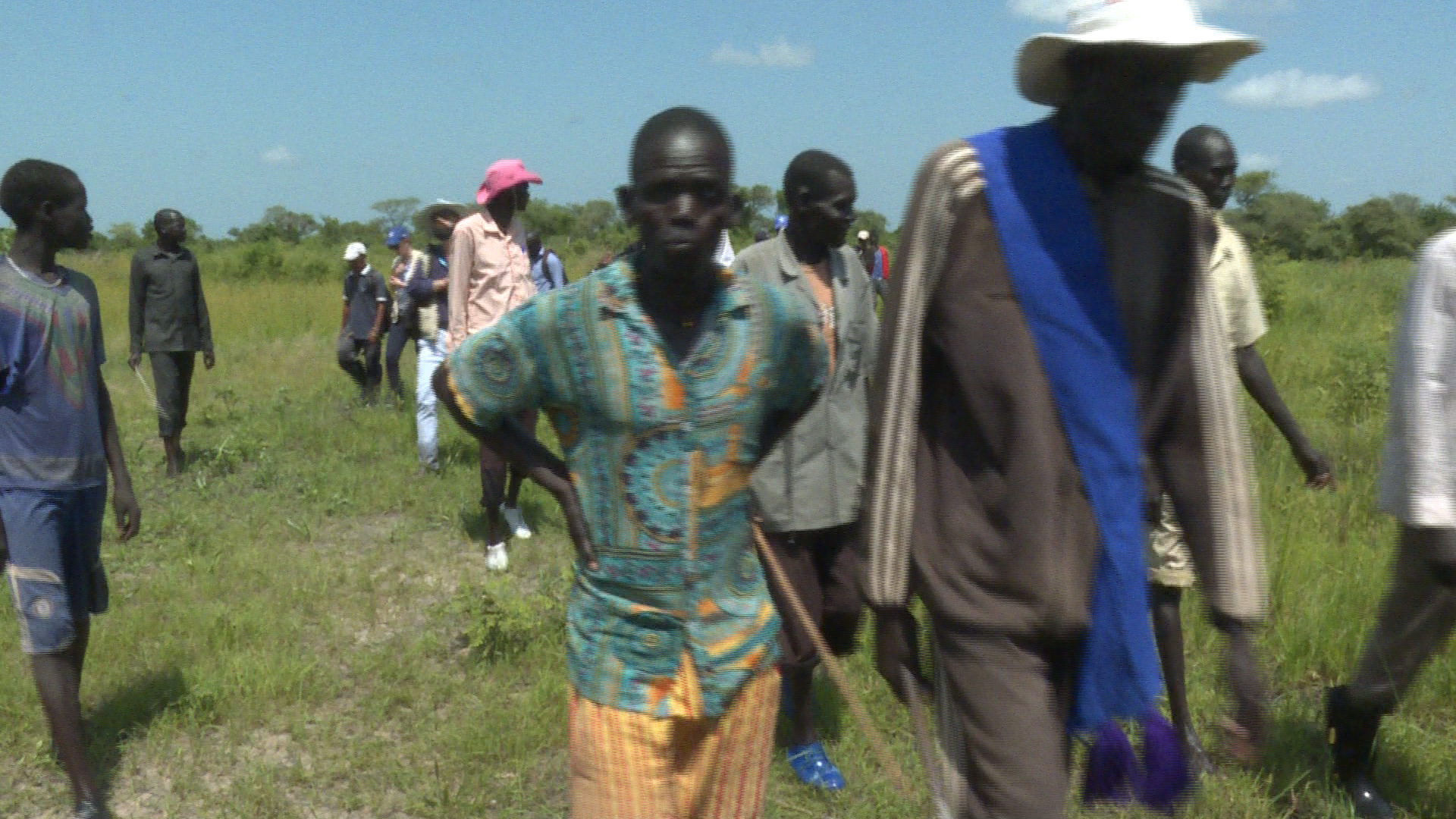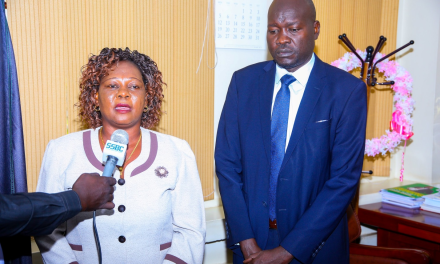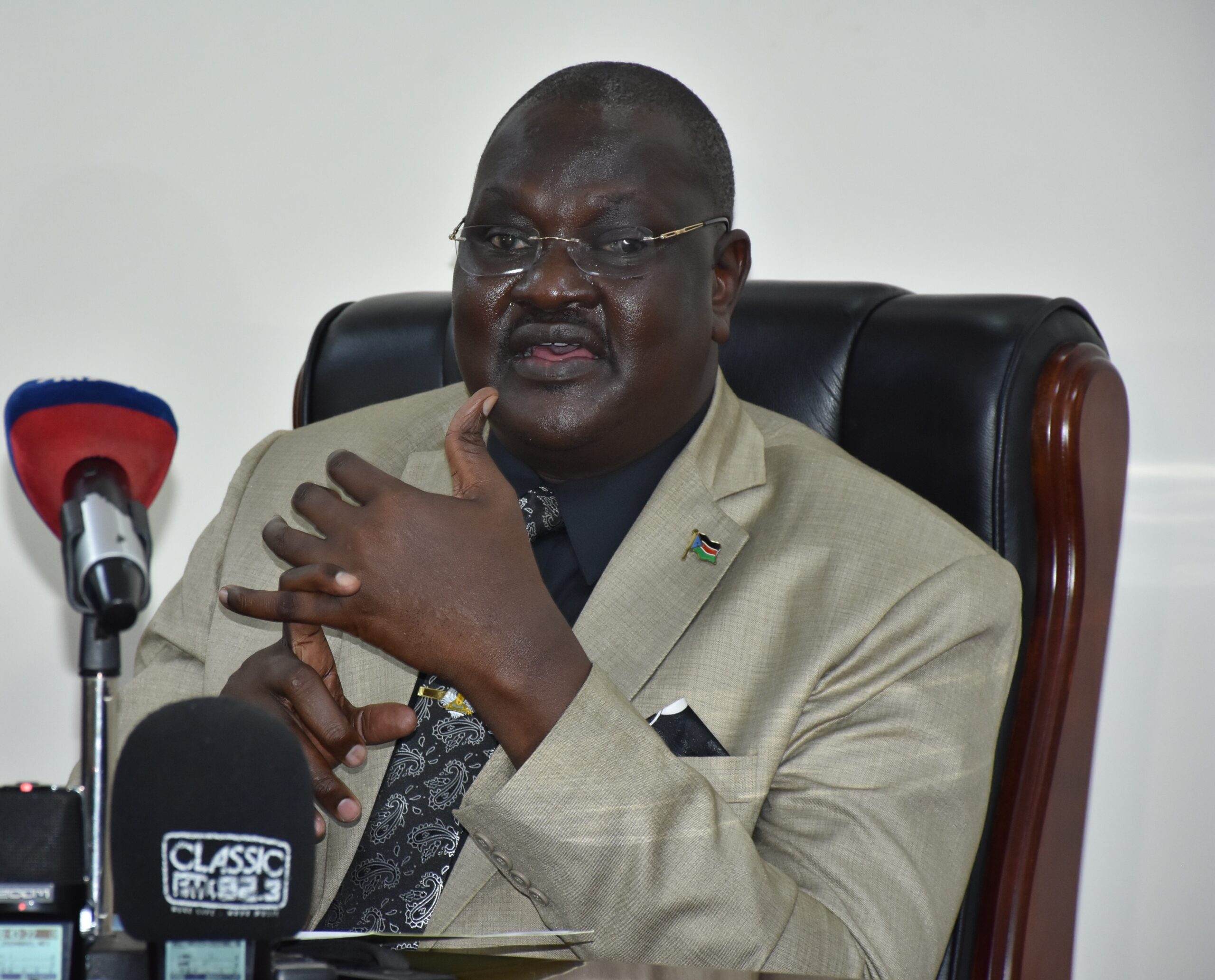
South Sudanese Returnees Hit Blank In Search For Homes

By Okech Francis
When war broke out in South Sudan, Gatduong Yak fled what was his happiest abode on the outskirt of the capital, seeking refuge at the United Nations Mission’s protection facility in the country.
Idling away in the Protection of Civilian Site, he would relish the day he would set foot on his two plots of land in Hai Referendum, a suburb of Juba.
“When I left, I had a bamboo fence but the two plots are now in a wall fence,” Yak told Juba Echo on June 8.
“I couldn’t even stop at the gate when I reached there for fear of the people who may be occupying it,” he said.
He is one of the many people who have been released from the UN bases and have no home to return to claiming their lands were occupied by other people, including powerful shots in the government.
The act is illegal and could throw the country into a state of anarchy if it is left to persist, Professor Abraham Kuol Nyuon, the Dean of the School of Social and Economic Studies at the University of Juba, told Juba Echo by phone on Tuesday.
“It begins with individuals but it might have a spill over later. If these people whose homes are occupied become angry, there might be a fighting between those who are occupying houses and those whose houses have been occupied, it might spread across the country,” Nyuon said.
“These people whose houses are occupied need to come out, telling how many houses, and where they are occupied. The government needs to form a committee to solve this problem.”
Thousands remain displaced
At least about 30,000 people have failed to leave the POC in Juba and a bid to get alternative land in the capital has put some in jail.
Court sues on land grabbers have proven too expensive for the people who have idled in displacement since 2013 when conflict erupted in the country.
According to Yak, opening a case costs between 100,000 and 150,000 SSP. Court have also demanded the complainants to compensate land grabbers for “developing” the land, further complicating their cause, he said.
People who dared to go to court have also abandoned the case due to pressure and threats from defendants.
“If you try to go through the legal process, they will ask you to pay the person for constructing on your land but if you are from the IDP, where do you get the millions to refund,” Yak said.
Demands from Central Equatoria for such complaints to be registered with its authorities have not been heeded, according to the Minister of Local Government at Central Equatoria State, Moro Jenesio.
“Those who complain that their land have been occupied have not reported the issue,” Jenesio said by phone on June 8.
Seeking Alternatives
“To be sincere, and as far as we know, some of the people in the POCs do not have land. The best they can do is to go back from the places were they come from and if you have relatives in Juba, stay with them and apply for land through the right procedure,” he said.
“But if I go there and try to mobilize my tribesmen or criminals to grab land by force, it is not the right thing.”
Many people returning home have sought alternative land for resettlement in Juba’s Amadi suburb but have ended up in Jail.
Jenesio said the land in Amadi was demarcated way back in 2012 before the crisis and any current occupation by new people is illegal.
About 146 people have been arrested for “encroaching on someone’s land and also extortion of money from the people” and are awaiting prosecution, Jenesio said. Of those arrested, 50 may be from the POC.
“Land in Amadi belongs to the people already and those people have been given the documents,” Jenesio said.
“The tokens for those lands were given out under the Ministry of Housing in 2012 but because of the 2013 incidence, people have not followed it.”
He urged those seeking for land to apply to the State government and wait for demarcation exercises.





































